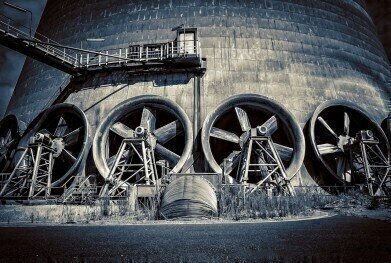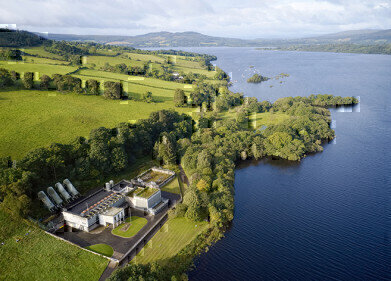Consultancy Services
How Can Industry Stop Climate Change?
Jun 25 2021
Climate change is a sprawling issue that manifests itself in a variety of different ways and affects virtually everyone on the planet. With that in mind, the onus is on all of us to follow the lead of climate scientists and adjust our own daily habits to have as minimal a negative impact on the environment as possible.
Having said that, there are certainly some parts of society which can have a greater effect than others. Given that industry is responsible for a significant proportion of the greenhouse gas emissions which are fuelling climate change, it must assume a larger amount of responsibility in tackling the issue. But what exactly can industry do to slow and potentially reverse climate change?
Transition to renewables
At present, the vast majority of industrial processes – whether they involve energy generation, metal production, goods manufacturing or something else – rely upon fossil fuels for their power. Oil, coal and gas have served as the driving force behind the Industrial Revolution for well over a century, but the greenhouse gas emissions they incur are highly damaging for the planet. Therefore, industrial companies must look to transition to cleaner and more sustainable sources of power, such as wind, wave and solar. If entire industries were to make this switch, it would have an enormous impact on carbon emissions.
Install CCS technologies
While a full-blown transition to renewables may still be decades or more away from realisation, there are bridging technologies which can help. The development of carbon capture and storage (CCS) devices is one such promising avenue of research, since it removes carbon from the effluent stream of smokestacks and other industrial points of emission before it can contaminate the environment. The carbon is then transported to a storage facility, normally underground, or else used for other purposes so as to recycle it as much as possible.
Optimise efficiency
One short-term step which companies can take to have an incremental but immediate impact upon their environmental profile is to address the efficiency of their current operations. For example, those employed in the refrigeration industry can ensure that heat loss is kept to a minimum and that the latest technology is employed to identify potential inefficiencies in their system. By addressing those inefficiencies, they can not only boost their plant’s performance and reduce their energy bills, but also positively impact the environment at the same time.
Embrace digital transformation
Following on from the point outlined above, the use of cutting-edge technology will be instrumental in cutting emissions and bolstering environmental performance for firms working in virtually every sector. For example, the agricultural industry can adopt the use of drones and analytical apps to enhance precision irrigation and fertilisation of crops. It’s a similar story elsewhere, with businesses working in any niche utilising cloud-based technology to enhance collaboration, reduce paper consumption and facilitate remote working. Cumulatively, these steps can have a significant effect on the planet.
Events
May 05 2024 Seville, Spain
May 13 2024 Munich, Germany
May 23 2024 Beijing, China
May 23 2024 Beijing, China
Jun 10 2024 Algiers, Algeria














